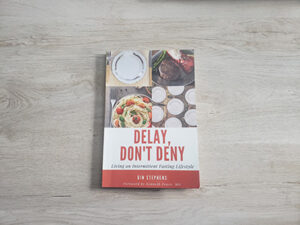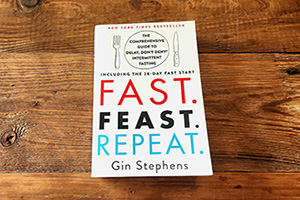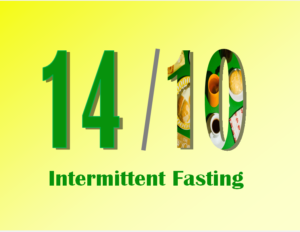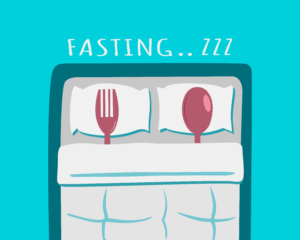
Whether you are new to fasting or returning after a break, now is the time to get serious! Throw in some mini fasts now (while on vacation or in fasting limbo) and your body will thank you later. Mini-fasting is the perfect way to ease into intermittent fasting for longer timer periods.
{RELATED POST: How To Start Intermittent Fasting}
Why any time is the perfect time for mini fasts
- Intermittent Fasting is NOT a diet plan that requires you to cut-back or deprive yourself from your favorite foods. Which means, you CAN eat, drink and be merry during your vacation/holiday as planned. You can always resume fasting after vacation!
- Intermittent Fasting does NOT rely on a certain number of work-outs each week.
- Intermittent Fasting does NOT require expensive supplements, meals, etc. (In fact, you will SAVE money you can invest in yourself.)
- Intermittent Fasting allows your body to have some time each day to empty your stomach. Moving food through the system is an “all hands-on deck” process for the body; so when we eat every few hours, it never gets a break.
- And my favorite? Intermittent Fasting is a reward for your body every single time you do it. Even short mini-fasting helps promote better digestion, higher energy levels, and restful sleep.
- Plus (and I love this), the positive effects from one day are not negated if you choose not to fast the next day.
In short? Intermittent Fasting literally allows you to have your cake and eat it too.
{RELATED POST: 14/10 Intermittent Fasting }
Experts agree the following individuals should not be intermittent fasting: women who are pregnant (or planning to become pregnant) or breastfeeding; anyone under the age of 18; those with a history of disordered eating; and anyone with a medical condition, especially diabetes. Intermittent Fasting might also interfere with certain medications.
How do mini fasts affect your vacation or holiday?
Basically, you can still eat everything you planned to eat whether it’s a vacation or the entire month of December. Your holiday dinners, all-inclusive buffets, and parties with friends are still on the table here. All is good!
At the same time, you can add some mini fasts along the way. Will you lose a lot of weight while mini fasting? Probably not. However, you will feel better and have more energy to enjoy all the fun things you have going on.
But don’t forget, we all need a vacation from fasting once in awhile. So whether it’s a fasting vacation or not, enjoy yourself! You can return to disciplined fasting after vacation.
Holiday/Vacation Intermittent Fasting Plan:
If you are an intermittent faster in a strong fasting routine and plan to roll on through your holiday? GO FOR IT GIRL! I have so much admiration for women who can maintain their longer fasting times no matter what.
Secret weapons to get on track:
Whether you’re a pro, brand-new, or just out of the habit when it comes to fasting, here are a couple of books we urge you to read (or-re-read) while you are mini-fasting:
Both books are by Gin Stephens and worth every penny. Feast. Fast. Repeat does a good job of explaining the science. Delay, Don’t Deny is a lighter read and perfect for beginners.
Gin does a great job of explaining how to eat what you want while your body repairs and sheds pounds. (Check out Dawn’s overviews of Fast. Feast. Repeat and Delay, Don’t Deny.)
Women Who Fast is a participant in the Amazon Services LLC Associate Program, which means we receive a commission if you purchase through our link, at no extra cost to you.
You’ll certainly want to keep your copy of the book close by your holiday to keep you energized about fasting. Not to mention how helpful it will be when you aren’t hungry but still thinking about a midnight trip to the kitchen. I can’t tell you how many times over the last few years an article or book about Intermittent Fasting has motivated me to keep fasting.
After reading the books, you’ll see why so many people from all walks of life choose fasting to radically change their overall health and yes, lose weight!
What are mini fasts?
Mini-fasting refers to a group of different intermittent fasting strategies. (See Chapter 3 of Fast. Feast. Repeat. to read more about intermittent fasting variations.) The specific mini fast strategy I think is perfect for beginners and/or “eat-drink-and-be-merriers” is called “prolonged nighttime fasting.” AARP’s “Eat Now, Fast Later,” defines prolonged nighttime fasting as refraining from eating for at least 13 hours overnight.
The AARP article also discusses a 2016 study of more than 2,400 women, published in JAMA Oncology claiming that “prolonged nighttime fasting may have protected those with early stage breast cancer against recurrence. Women on this plan who fasted 13 or more hours per night not only reduced their risk of developing new tumors by 36 percent, they also slept longer and had improved blood sugar regulation.” (Information like this is what supercharges me!)
Why mini fasts are perfect for beginners and holidays
Obviously, mini-fasting is ideal for holidays simply because it allows you more time for all the holiday celebrating. Mini-fasting is also perfect for beginners because it helps prepare you for longer fasting periods in the future. Fasting experts across the board recommend starting with shorter fasts to gradually teach your body there is no looming famine crisis. By slowly working up to longer fasting periods, the body adjusts to your new eating timeframe.
This is extremely important because if the body thinks it might be entering a crisis, it usually slows everything down, including fat burning and energy levels. Even when we carry around a large amount of “stored energy,” our nervous bodies may start burning the limited amount of muscle we have to save our fat for for a potential famine. (Very thoughtful, right?!) As irritating as it is, I guess we should thank our bodies for being so protective of us.
Some of us have experienced this during strict calorie restricted deprivation diets. We called it a “plateau” and proceeded to either double-down, eat less and made it worse; or we got depressed and ditched the diet.
Here’s how I mini fast:
After you finish eating food and drinking caloric or artificially sweetened beverages for the day, start the timer on the Women Who Fast app for 13 hours and walk away quickly from the kitchen. Tracking your fasts on
Now back to the example. So if you have your last cookie or glass of wine at 9 pm, your goal will be to wait to eat until 10 am the next day (13 hours later). You can and should drink as much water as you want during your fast.
Fast forward 13 hours: If you are still asleep after 13 hours of fasting or just not hungry, then by all means give your body a little more time to do its thing. If you feel like trying a 16 hour fast one day and your schedules allows, DO IT! Experiment all you want. The only rule is to squeeze in mini fasts when you can and feel proud of it! (There is no room for guilt in a good mini-fasting plan.)
That’s it! That’s the plan. Could it be any easier?
After the vacation or holiday
Something to revisit AFTER the vacation or holiday: Yes, you can eat and drink as late as you want with intermittent fasting. However, there is often a notable difference in results between people who have their last meals earlier in the evening versus the night owls. I have experienced this for myself and outside of a special occasion or holiday, I try to finish eating at least three hours before I go to bed.)
Also, a note on hunger: Most of us are pretty aware when our bodies start giving us hunger signals. And we all know from experience that a growling stomach can wait a bit. But if you feel light-headed, have a headache, or just don’t feel right, then eat something. For sure! Depending on the severity of your experience, you may want to let your doctor what happened before fasting again as these symptoms could be a sign of another condition that needs attention.
Experts agree that intermittent fasting is not for everyone. Please read our Terms of Use.
Read your new books and stay engaged with your mind and body
As the days go by, be sure to take some time each day to be curious and observant about how your body feels after fasting. Are you comfortable after 13 hours? Could you see yourself going longer if you wanted to? Did you notice anything you need to talk to your doctor about? Also, how do YOU feel about intermittent fasting? Are you a little proud of yourself for giving your body a little holiday?
We would love to hear how it goes, so please email us at support@womenwhofast.com.
Thank you for using our links!

















